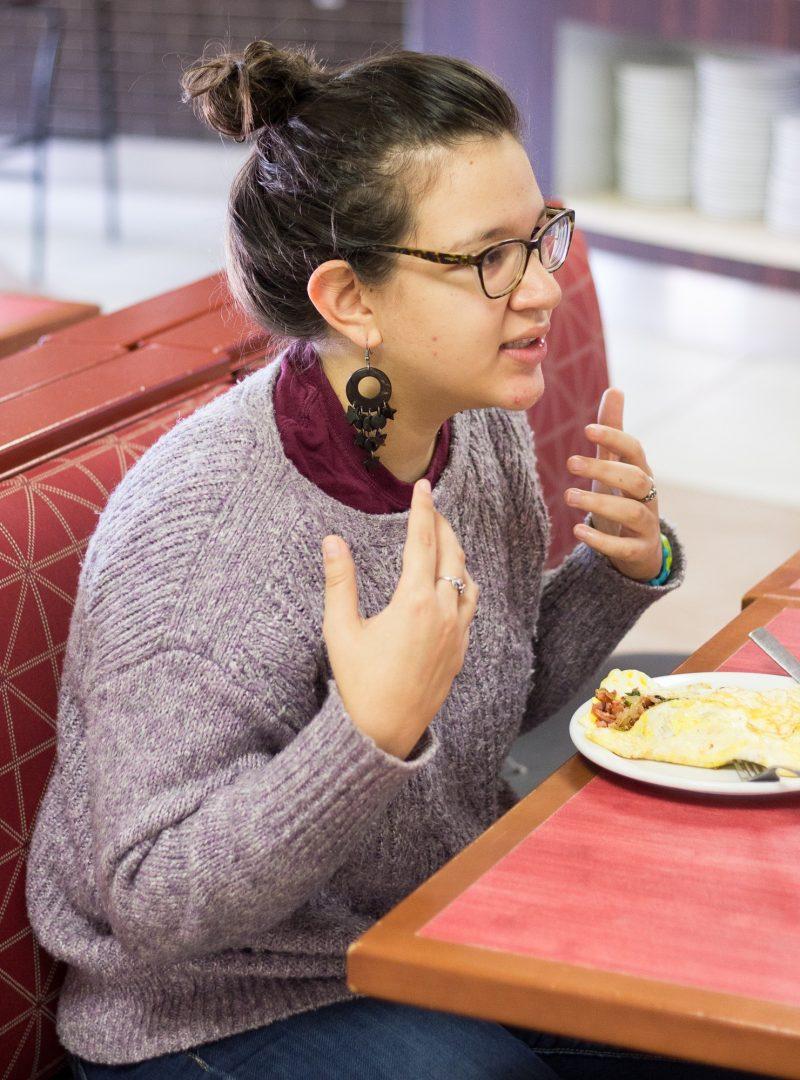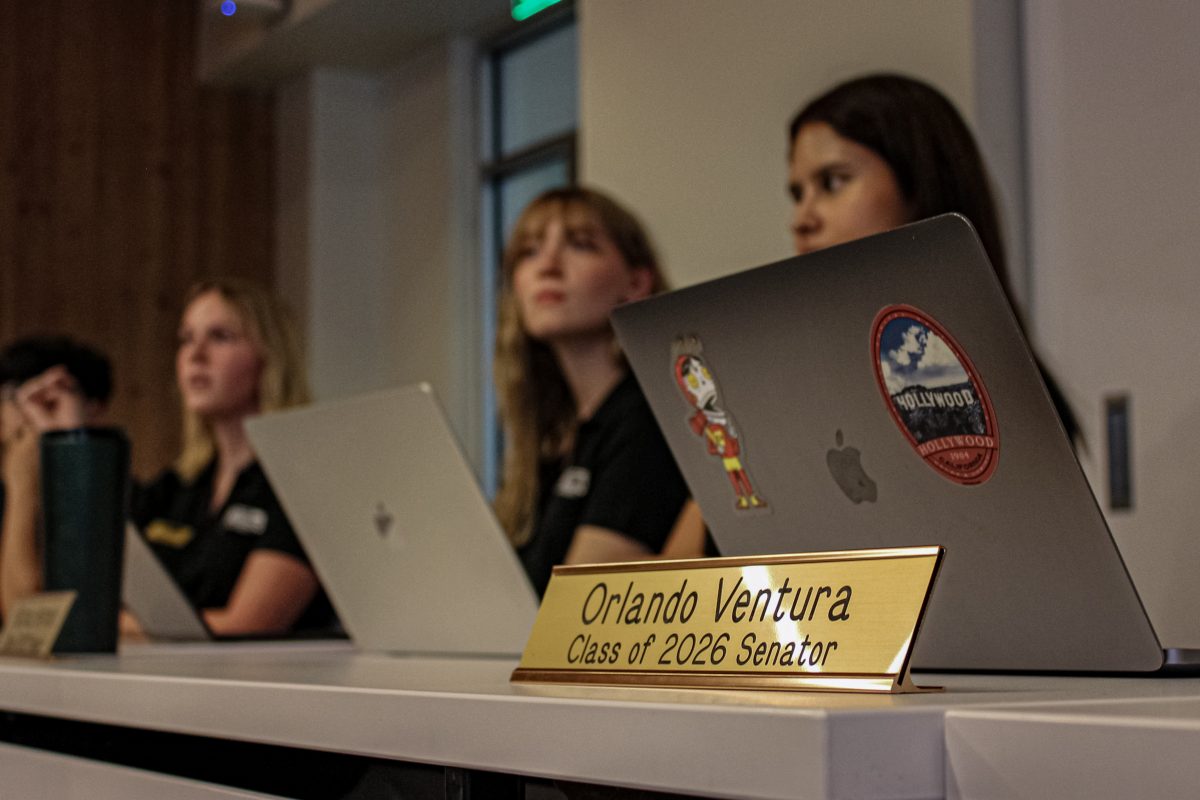Some student organizations, including Vietnamese Student Association (VSA), Trinity University Latino Association (TULA) and Black Student Union (BSU), have had trouble recently with securing spaces to hold events.
An Events Review Committee now requires student organizations to fill out a form several months in advance, and any guest speakers have to be screened by the committee. This regulation also applies to small group meetings.
The two guest speakers for PRIDE’s February Art and Activism event — Graciela Sanchez and Lisa Scheps from the Esperanza Peace and Justice Center — had to sign a waiver and go through the speaker screening process, even though the event was attended by a small number of students.
In addition, student organizations must book non-routine events four weeks in advance, and repeating events — such as club meetings — two weeks in advance.
“The four weeks is important for elevated-risk events,” said Jamie Thompson, director of Student Involvement. “And so, the more time we have for elevated-risk events the better. That four-week window is the ideal.”
Alex Motter, president of VSA explained how these regulations work differently for larger events than for small events.
“If it’s a big event, obviously we want to make sure that those checks and protocols are in place, but if you’re doing a small thing that’s intentionally low-key, it’s inconvenient to have to go through all the work that a big event has to go through,” Motter said.
According to Motter, reserving spaces months in advance is challenging for student organizations that generally hold small events.
“You have to have the location for non-repeating events approved a month in advance. And that’s great for a big event that has a lot of logistical moving parts because you’re able to talk with risk management, TUPD and anyone who might necessarily be involved,” Motter said. “However, it’s really inconvenient for non-repeating small events.”
Motter and other VSA members plan to hold a video screening in the Fiesta Room for students who performed in this year’s Lunar New Year festival, so students have the opportunity to view their performance.
In accordance with the T-Space rules, this non-repeating event must be approved by Student Involvement and the Events Review Committee a month in advance. However, because the video is currently in production, it’s hard for VSA to set a concrete time and date for its screening.
Bernie Sanders’ visit to Laurie Auditorium in March was a recent exemption to this rule. The event was facilitated by Trinity Progressives and the off-campus group Our Revolution Texasa, but it was not screened a month in advance. Motter said that this exemption may pose future problems for the Events Review Committee.
“If you’re going to give exemptions based on how high-profile someone is or how important the event is, are you going to be passing subjective judgments on every single event?” Motter asked. “If an event seems like it’s going to be more interesting, does that mean it’s going to be bumped up on the priority list?”
Thompson explained that, though four weeks of preparation is ideal, the Our Revolution event is an example of how flexible the process can be.
“In that particular instance — I will only speak for myself — I probably dedicated two full work days, and that is a lot of time to dedicate to just that event, and also a lot of sleepless nights. So it’s not without sacrifices,” Thompson said. “So we really emphasize that four-week window.”
Though it can be done in fewer than four weeks, Student Involvement recommends getting started sooner.
Shannon Edmond, coordinator for student programs in Student Involvement, and Thompson shared a document with more information about the process.
“The intent behind deadlines is to ensure that student leaders are forward-thinking. In order to have a successful event, it takes planning and coordination, weeks and months in advance,” the document reads. “The deadline creates a culture in which students are motivated to plan in advance.”
Another issue that students can face is being dislocated from a space because of another university-sanctioned group that takes precedence. TULA recently had to find another location to host the De Colores ceremony after being displaced because the Board of Trustees was holding an event at the same time and place.
TULA had undergone the event verification process and reserved the Great Hall over the summer, but because the group didn’t have a T-Space coordinator at the time, they had to ask an outside party to reserve the space. Consequently, the members of TULA were unaware that they had been displaced for several months.
Janett Muñoz, a member of TULA, explained the organization’s struggle to find a new location to host De Colores.
“We thought about the Skyline Room, but we needed a bigger space, so we thought, ‘Okay, we’ll do it in Stieren,’ but then the Board of Trustees was going to be outside, and then we tried Ruth Taylor, but that also didn’t work because the Board of Trustees was going to be there,” Muñoz said. “We were left with the Fiesta Room, but now we’re going to have to cap the number of guests because this is what we have.”
According to the Student Handbook, there are some university events and departments that may have priority for facilities and equipment. For example, Thompson explained that a sports team would have priority over other groups for use of parts of the Bell Center.
This was the case for TULA and the conflict of the Board of Trustees meeting.
“The intent is that there are going to be events on campus that are central to the institution’s mission and space is a finite resource on campus. And so, there are some meetings or events or needs that require organizations or departments to be flexible,” Thompson said. “There’s only a handful of spots on campus that will fit certain groups and sizes, or meet the needs of a certain event.”
According to Thompson, most problems with scheduling spaces, including the conflict TULA had, can be resolved by speaking with Edmond.
“I’m not saying that would have necessarily fixed it, but it’s always good for organizations,” Thompson said. “We are a support network, we are a resource. So if there are questions or concerns, we would always encourage students to come to us and say, ‘We’re having a hard time getting the space we need, can you help?’ ”
Student involvement emphasized that the process is still being refined.
“We learn after we try it for a year. So in that sense it is a little bit of an experimental year,” Thompson said.
Students who have questions about the Events Review Committee or the T-Space room reservation process can email Shannon Edmond at [email protected].
With additional reporting by Kathleen Creedon, news editor
A version of this article appeared in print on April 06, 2018, on Page 4 of the Trinitonian with the headline “Organizations face challenges with T-Space.”








